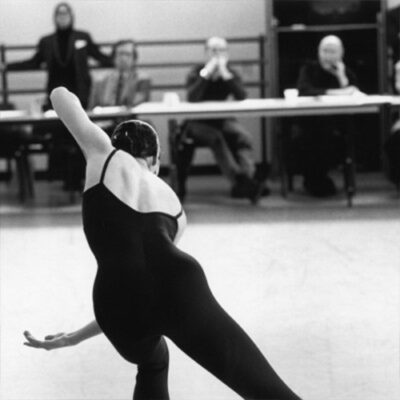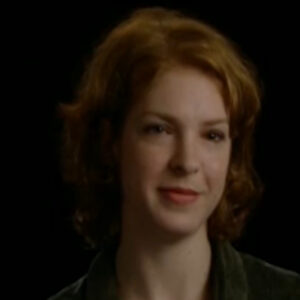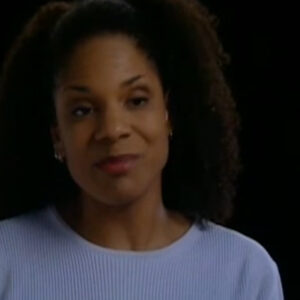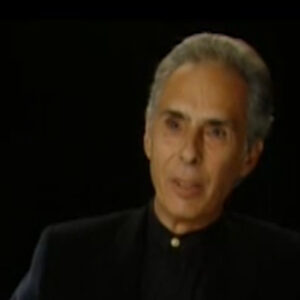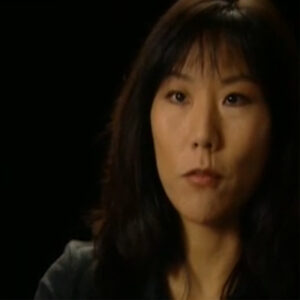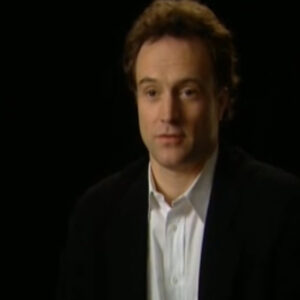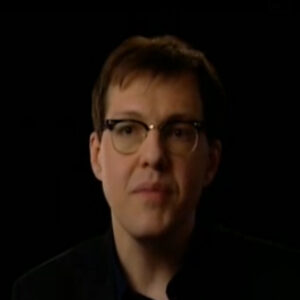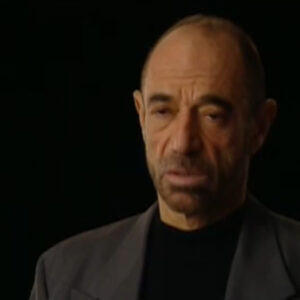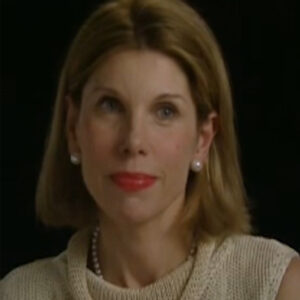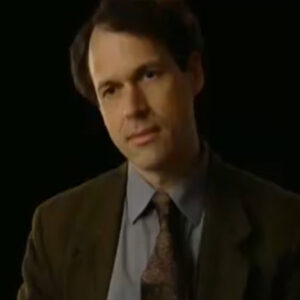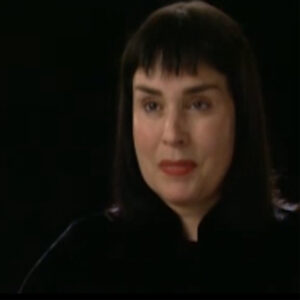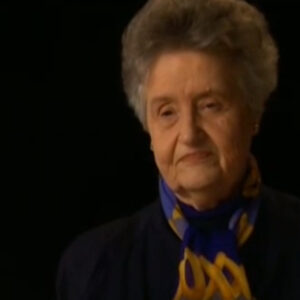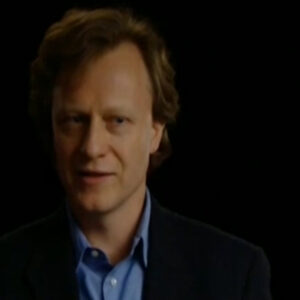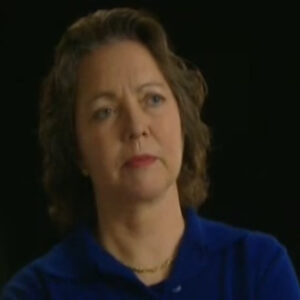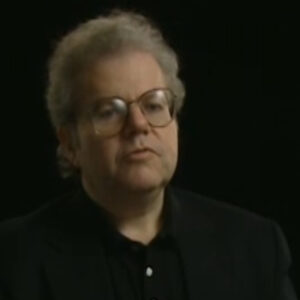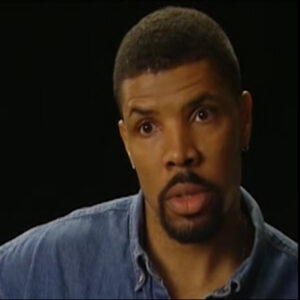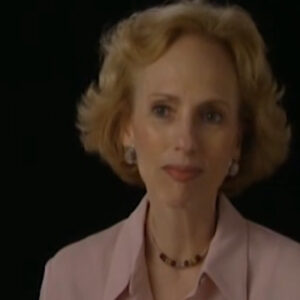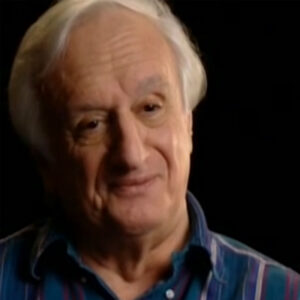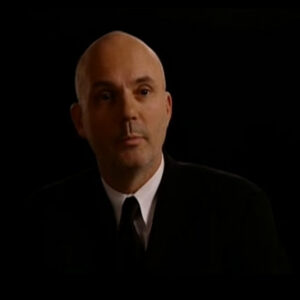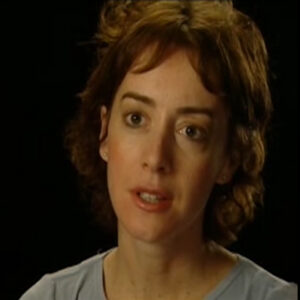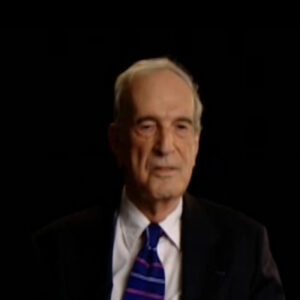Speaker Result, sort of this is basically kind of good that John Houseman came to Little Rock and sort of found me, I was in high school in North Little Rock, Arkansas.
Speaker And I had been an athlete. And, you know, then the student plays and things and had gotten interested in the theater. At the same time, there happened to be a fine arts college in Little Rock, which had just come into existence for three or four years. And they were totally financed.
Speaker I won’t say totally, but primarily by Winthrop Rockefeller. He was the governor of Arkansas at the time. This is all a way of getting that they started doing. And I was involved with him sometimes doing their student productions or just hanging around. And they they were a fine arts college. I was still in high school and they thought I had some talent. So they were always the professors there, Dougal MacArthur, who went on to be the head of the drama department. And how did the acting department at Cal Arts when they first formed it? But this time he was the head of the school and they were they started doing a political drama about that. They were writing themselves about the Arkansas prison system. It became like a big controversial subject. Winthrop Rockefeller withdrew his money, closed the school. So they had this class or of about 40 students who had nowhere to go to school. They heard that Juilliard was opening. They call them and said, we have all of these students who have nowhere to go. They’re really talented. We think they’ve gotten some national review. And so they convinced John Houseman and and Michael Kahn on their way to the Dallas regional auditions to stop the plane, to make a landing. They just took it. They’ve got off the plane in Memphis and took a little short plane into Little Rock, ran over to the art center. So all these students do. MacArthur called me the night before and said, there’s a man coming to town tomorrow whom I think you really should meet. And I said, Who is that, John? How’s that is? And I said, I’m really busy. You do good. I’m I’m doing my senior play. I I’m in. And he said to me that basically I will never speak to you again unless you come over to my house. Right now, I’m going to give you two things. We’re going to we’re gonna give you something that everybody in the world is doing. You’re going to do the most prototypical Shakespearean soliloquy. You’re gonna do once more into the breach. You’re gonna read the final speech of The Glass Menagerie tomorrow for John Houseman. Okay, Giovanni. Silus, I got him. Came back next day. I went to in the afternoon. I got out of school and I went over to meet to John Houseman and I auditioned. And three weeks later they said, we want you. I said, I don’t have any money. And they said, let’s see about that. And then they came back and said, We’ll give you all the money. Come.
Speaker Like what?
Speaker What were the love her husband, Colin, like at that time?
Speaker When you walk into the middle, are you ever. What did you think of them?
Speaker They were basically very, very polite. And and I. All I know is that my improvisations seem to wildly amuse Michael Kahn. I don’t know why, but he he was just tickled. And I had a good feeling about meeting him because I didn’t have an application or anything. I wasn’t really supposed to be part of this audition. I was just a little addendum at the end, sort of said, we have this one of the person who hasn’t filled out any forms. You don’t know who he is. He doesn’t have a resume. He doesn’t. He’s in high school. And then John got up from his chair in the back, the audience, and walked down very slowly. So it’s remarkable what you’ve done with your voice, which you can do with your voice. How old are you? And I said I was 17. He was 17. You’re a baby. Please write your name and number down on this piece of paper so we could get in touch with you. So he was just kind and fatherly. I. I didn’t know anything was going to come of this, but it was really just, you know, the finger coming down and touching you and taking him out a little rock. The next year you’re plunked in the middle of Manhattan.
Speaker And tell me, you know, I was just questioning what what what little you do know how how how John and Michael and Michelle, how is this you know, where did it really come from? Juilliard.
Speaker I mean, like I say, I only know what kind of thumbnail set of facts about the fact that Juilliard, of course, was this great established school for musicians and they were constructing or planning for Lincoln Center. They wanted Lincoln Center to have one educational institution, a conservatory of Fine Arts. So they’re looking around. And, of course, Juilliard came to mind, but they did not have a dance department or drama department. And I don’t believe they had a fully. I’m not sure about this a fully realized opera program at that time. And they said, well, we’ll give you this building. We will give you, if you will, add the American Opera Center, which what came to be a dance department, the drama department. Those things were phased in over 10 years before we actually went in two or eight years. And I don’t I’m not sure of the dates, but I know that the dance department came into being in the early 60s, run 64, I believe.
Speaker Do you do you remember that you came in if you want.
Speaker Really? I don’t know. Anyway, so they added the drama department and it was a condition that they beautiful performing arts conservatory. And we. So that’s one end that it’s finally came about. I’m I’m not certain how John was chosen and and how Michelle. Other than Michelle’s success and fame from Strasbourg, all the Canadian theatre school to finally Juilliard.
Speaker And what was it like that first year you say pull on exhibit boy?
Speaker Sure.
Speaker Was it like the first year they plunked down the middle of Manhattan, 17, maybe 18 by the time you got there?
Speaker I turned 18 during the first year, but it was just it was a horrible experience for for the most part. I mean, mixed in with everything else. I mean, just being a baby, going away to school. I mean, I was born and raised in North Little Rock, Arkansas, and general suburbia went to a wonderful, giant high school in which, you know, had millions of friends and who were all kind of like me or not. But I to go to New York and I basically I didn’t have a lot of money, so I was like trying to save it. I, I my housing was Julia. It had a list of rooms that you could rent in people’s homes. And so I went down the list and found the cheapest one I could find, which was eight dollars a week, which got me a tiny little room in a retired Ziegfeld Follies girl’s apartment, which with two other boarders, an old man, older man.
Speaker And it was about seventy five.
Speaker Cecil, who this his family had basically put him there and they would just send her some money every once while to take care of him. A longshoreman who only stayed there the nights that he has his girlfriend kicked him out when he was too drunk. And so he would come there and turn on the radio at full blast and pass out. And we couldn’t wake him up. So we couldn’t sleep. And cost me eight dollars a week. And I put this person in this apartment that was just up the street from the building Claremont Avenue, which was filthy rat and cockroach infested. It was it was truly horrible. And New York City was a big, ugly, dirty, mean place to me for a very long time. Of course, as anyone who’s gone to live there and lived there long enough, not anyone, but most people, you know, as I did fall totally in love with it and can’t imagine living anywhere else. Although here I am, Los Angeles. But I stayed there for 20 years. So that was the New York part of it, which was awful. The school part of it was was terrifying. I knew what I was getting myself into. My teachers were nice, but they were very demanding and wanted to see, you know, whether any of us were going to make it through. We were told that when you’re told immediately when you walk in that, you know, quite a few of you, probably a third of you will not be here at the end of this year, you will be asked to leave a third US will be gone. Well, that that does a lot about it sort of sets the the tenor of of. Is it going to be me? And there was a fair amount of paranoia. I remember once there were certain students who were called up to John’s office. We knew that in the second year we were going to be taking one of Michelle’s famous courses or part of his training, which was the character masks. I don’t know if you talked with a character coming. And we were told that certain students were called up to John’s office about the comic mask class. And there was a sort of like Russell throughout the heavens that the people who were being called up to John’s office about the character mask class were only the only people who were actually going to be involved in this group. And when it turned out that had nothing to do with it, all they were doing was just trying to get a sort of vast aura, a sample representation about the size of the skulls that they needed to make the masks for those heads. It had nothing to do about who was going to be taking it or not. But that’s one of the one of the times I’m talking about the pressure that that we were under to be thrown into a Shakespearean play. The first thing I mean, which is called the test, in which you’re supposedly not to be given very specific direction. The whole point of is, is that you are to fail and then you are to realize why you failed and why you needed to work on your speech or your movement or your interpreting, when basically at that point I had only seen one Shakespearean play and won the movie. I’d seen Olivier do Othello.
Speaker So you were I did feel pretty lost for quite a long time.
Speaker What did the other what were the other kids like? What was the mix? I mean, we certainly now know in retrospect and certainly we know everybody was there. But for you, what was the relationship like when you’ve got this isolated eight dollar, you know, really felt great dad here, you know, but what what was everybody else like, Patty?
Speaker And people, you know, you know, tremendously wide range of personalities. But.
Speaker But what were they, General?
Speaker I don’t know what they were generally like. They’re very extroverts. I know that we were not popular people. You know, that first year we we were not at the new building. We were in the. We rented rooms in International House, which was across the street from the old building. And so we were basically taking space away from the people who were residents of International House, which was a rooming house. Whole organization with a cafeteria. And they had social programs for graduate students from Columbia and Barnard. And so those people were older than we were. They were 25 and 26. And we were these little loud drama hippie people who were there. And we’re taking their space. And it was pretty true that we were pretty loud and obnoxious and sort of took over the cafeteria when we were there and monopolized sets. Does that not? Yeah, I mean, to those other folks. But we’re we’re just trying to, I think and just be heard. You know, they were. Everyone was pretty young and. You know, I want to say I’m here and I’ll make room for me. And there were lots of big personalities that you probably don’t you. And did.
Speaker And wonderfully talented people, but very demanding, very demanding. Some of them in different ways and demanding of, you know, look at me or I need to be heard. The gist of it was it was a very demanding class.
Speaker And I’m sure that’s part of the reasons it was successful that you had you had a lot of competition for for praise for the parts because there weren’t any auditions. The parts were that were handed out. And all these wonderful plays we did were just done from above, from John and director, or it was basically John deciding who who’s going to be playing these parts. And of course, there’s it’s hard to to realize, especially at that early age, how important it is that it doesn’t it doesn’t necessarily matter how big the part is or that you’re playing the romantic lead or what it was, which we were all young people. But it was tough for a lot of the students. I never get to play. I never get to play the prince or I don’t get to express that part of my part of my ability. But after a couple of years, if you were fortunate enough to to hang around that long. It sort of evened out. And I think I know that I was fortunate. I got to do all kinds of things.
Speaker There was a talk and I read John’s book, Final Dress. I talk about almost creating a program together, things that came and went. What was that all through the first year? In a way you did together with the faculty, or did you not really feel that way?
Speaker Well, I think that’s in hindsight. I mean, I think none of us were aware of that, that some of these classes might come and go. I mean, we were taking it for the first time and it was my first time in a school.
Speaker I was coming right out of high school and starting to get some water, but to drive. But.
Speaker Later, looking back, we could say, yeah, that class disappeared. But while we were doing our thing, well, this must be part of the curriculum. This is part of the Bible, because we all thought that this was all thought out. And later on, you got to realize that we we were kind of guinea pigs and we probably took more classes than anyone will ever take there because we were just taking everything. They just were going on what had been done in it in Montreal and Strasbourg. And at the Old Vic and going, well, let’s let’s see what works and what what doesn’t work as a curriculum. And that was great. But I can’t say that I felt a part of it that the students felt a part of. Well, we’re we’re working it out with them. I mean, you can look back and say, yeah, well, we were, but I didn’t feel that way when I was doing it. I knew that we we worked very, very hard, for whatever that’s worth. We you know, school started it at eight thirty in the morning. And during the first year, we were generally out of class by seven thirty or eight o’clock at night. But that was because they had to give those rooms back to internationals. But the time we got down to Lincoln Center, when we had our own building, we started days in the morning and then you’d have a show at night. Sometimes you wouldn’t get out of there till ten o’clock at night.
Speaker So it was it was a lot of work. And you talk about that. What did you what did you see? What was that like? You really were the ones that are getting to March. Yeah. Floor stage theater for the first time. What was. What did you think first?
Speaker Well, it was beautiful. It was gorgeous. It was something totally different than where we were. It was also it was really good for me any way to get into the same building and with with the other students, not just in the drama department, to have the dance department just on the other side of that door. And then. And then Mr. Balanchine’s school just, you know, another 30 yards beyond that. And to start participating in thing, because the first year we we got to go see concerts, but because they were in one building and we had a very rigorous schedule in the other building across the street, there really wasn’t there wasn’t a great deal of of of interaction between the departments. But when we got downtown, I mean downtown, when we got to Lincoln Center, you were with them all the time. You were eating with them. I mean, not necessarily. They would as a whole Group B, all of your best friends, but there were opportunities to to be involved with them. I, I was fortunate enough, like were three of us, to audition for one of the operas and actually be in the chorus with the whole departments of where they were, the American Opera Center and the musicians working with Tito Bianco. So that was important to me. There was another opera that that John directed and he brought in quite a few of us to to fill out the course of that. It wasn’t a very successful opera, but it was a it was a modern opera about the Hells Angels. So we basically were bikers. And Benjamin Hendrix and I were in in the ballet of that with him. And John gave us a there’s a there’s a lot of time in this. We had these the opera had a couple of muses who were the sort of narrators of it. And they were Barbara Hendrix was wonderful.
Speaker Barbara was playing the muse and they said that the music is lovely when they’re out there singing, but there’s nothing going on on stage. So what? We really don’t have time. So what I would like you and Benjamin to do is just whenever you feel there’s a low that’s happening onstage, just don’t start a fight or something amongst yourself so that we have something to watch while this is going on. And and we started doing that and they found it. Oh, that’s wonderful. Is it? Now, just keep keep looking for those spots when there’s kind of a dull part. And, you know, you and Benjamin, I trust you.
Speaker Make it up whatever you want. So that was that was great. I enjoyed very much being around the musicians. Not that I got to be great friends with them. I mean, I did date of view, but it I find it important and I also because I had a job for several months on a Sunday afternoon, being the the student who was in charge of checking out the reviews. The building was closed on Sunday to checking out the practice rooms to all the musicians. And that was just that was also a great learning experience about how hard they worked. How devious they were. You know, there’s several of them. So you had to sign in. Put your name down and sign out what room you’re going to where there was a piano room or some of them had harps or if some of them had nothing. You were bringing in your bassoon or your whatever you were carrying. But a lot of them. And it was open from noon until, I believe, seven o’clock. So I had to be there for seven o’clock, seven o’clock. I had to go up and make sure everybody was out. Some of them would come and sign the book. And then there was a little hallway stairwell by the thing. And then they’d sneak into the hallway and go back up and try to stay there all night or or at least until they were finished. I don’t know when that was.
Speaker But they yeah. They didn’t want to leave the building.
Speaker Hard working, the hard working musicians, no. Driven. Wonderful, wonderful. Driven. Know, just. I don’t have a I don’t have a piano. I need this.
Speaker Talk, if you can, a little bit about the sort of the sort of substance of classical training, you know what these classes were. I mean, even the same people that you were with, now many are still there.
Speaker A key. My whole life. I know that Liz Smith. I mean, the voice people some some are still been around.
Speaker Marian, tell me what you gay.
Speaker I mean, what were these classes?
Speaker I mean, you obviously I’ve been in class. What did they what? What were the classes like and what were the people like teaching?
Speaker Well, that’s a big question there. A lot of classes, but I can talk about. OK, let’s just talk about movement. Just just the list, the the names of the people that we got to work with or who were teaching the classes. You know, pretty remarkable to think that that we got to study with a Sokolow. I mean, she’s this tremendous Martha Graham trained and then created her own choreographer, acting teacher.
Speaker It was. A very emotional and demanding acting experience to work with on.
Speaker I mean, Ana had she had very specific moments where basically Martha Graham but her her intensity about how you needed to fill each particular piece of movement with emotion was always a was a great. Was a great acting class. She, along with Jane Kosminsky, Liz Keen, Bill Burdick. We almost always also had a pianist or sometimes more than just to be we’d have a percussionist who would accompany the movement. So it was all to do with interpreting between the the teacher, the musicians and the dancers, which were us on the floor. Although we were told we were not to behave like dance, you know, about the uniforms we had to wear the first year, silly. We were told we had to go to Model and de Vega before, which is a sporting goods store on Forty Second Street and buy a black t shirt, black jeans. Something like this, I sort of wore this today because this was part you got to wear a work shirt over this. That’s what you wear to most your class. But to your movement classes, the men had to wear a black t shirt and black swim trunks because they didn’t want because we are the desert. They didn’t want us to feel like dancers. I don’t know. But anyway, that was our uniform that went by the boards about. Well, we had to do it the whole first year. Sometime the second year they just went. I mean, people rebelled and that was just silly. Why? Why not put on a pair of tights? I mean, I didn’t want the boys to be enticed, but they would feel like they were dancers. So we took a lot of movement. I mean, money. Yeah. Kim was a teacher and a friend of mine. And I actually we we lived in the same building when I finally got a nice apartment, like. Right about the time I graduated. So he lived downstairs and I lived there until nineteen eighty nine. So I’ve known him for a long time. And a friend of mine. He’s a, you know, another remarkable linked to two movement, but coming out of this sort of chocolate cup mime style. And, and his work I think was, was very important to how we turned out as actors because it was just another little. Another little perspective on how you can use movement to convey emotion or.
Speaker Or two to develop your character. It’s so I can finish with the movement. We’re talking about other. What was it like?
Speaker Well, you’re acting. Who is. Who is the elusive art teacher? Somewhat. You were your. Who were your teachers?
Speaker Well, Michael. Michael Khan. Who was the head of the acting department at that time. Who’s now the head of the school. And.
Speaker Know he’s. Is it?
Speaker He was a very interesting character for me to first meet, to first work with and then finally to get to know, because when, like I said, we’re going back to the very beginning. When I got off the plane and I’m this big bumpkin from North Little Rock, Arkansas, that I had met him. I mean, he was there at the audition, but there was know not a lot of talk. And he was and he was sitting in the darkened auditorium. So I really didn’t have much of a feeling for him who he was. But the first we to the school and he’s there and he just the way he’s dressed. I mean, you know, he’s he’s Mick Jagger. He was this is the head of drama department. And he was a very, very extreme, eccentric sort of character at the beginning, at least to me. And then you got to Norman. And it was just part of how he wanted the world to perceive him. But he was also a very learned do well-trained classical artist. I mean, he was running the Shakespeare Festival at Stratford. At the same time, he was teaching us and my acting teachers.
Speaker Of course, Marion.
Speaker Marion was a magnificent, wonderful influence on. Well, I don’t know.
Speaker I think everyone, just because of the the care, the individual care she would take with each individual talent. She and she could be reached at any time for any conversation you might have about anything about life. She was a she was a wonderful teacher.
Speaker If you can talk a little bit about the emotional physical toll that the experience takes on, you know, right now I’m following third year young actor who looks like he’s going to.
Speaker So obviously, he’s been overexposed. I mean, a lot of people talk about, you know, you come from a certain kind of world.
Speaker You get there and they’re really trying to like, you know, bring you down a notch. A lot of pressure. But but also, there’s just these personal revelations. A sense of awareness of yourself.
Speaker How are you going to be an actor? How are you? What was the experience like for you in that sense? If you know what?
Speaker Well, I said the first year was was very difficult. Just just getting through it. There were only brief little moments in which you at least personally, I could lift my eyes up and go, oh, I. I think I’m getting something out of this. I think. I think they might ask me back. Maybe next year that I. I think I understand what what what Michael is talking about. And he, through praising me, was saying, yes, we are kind of at this moment at least.
Speaker But as time went on, I.
Speaker There I at least in my particular experience, it definitely got easier. The longer I was there and the more well, just the more that I became friends with. With John Houseman so that I, I, I knew that I could actually talk to him. And it wasn’t he was just trying to, you know, going you’re doing a good job and you’re a good boy. That he was really he had been watching what I was doing and and that he and I understood that I was getting better and that, you know, there were certain areas that I needed to work on, but that I that I could really feel that he was that he was looking right at me. And what I was doing and not just trying to form a company or just trying to be the headmaster that he was he was deeply interested in every one of us and could be reached in a one to one conversation. If you got got past what inhibitions you had about speaking with him, which was, you know, he was he was a initially would be a tough person to approach just because of his his bearing. I once Michael Conn invited me up to Stratford to watch a rehearsal of all of them, those discussions with them.
Speaker They’re getting ready to go into previews. And I have just had a success.
Speaker And someone asked that we were doing. I think it was a typist in the tiger. And he thought it would be interesting for me and good for me if I came up and saw what was gone because he said, we’re having some problems now, too. And so I he said, call me tonight. And Michael was moving his apartment from one apartment to another. And so he said, this is where I’ll be. And so he gave me a number and I called him. I called that number. And who answered the phone? This was like eleven o’clock at night. It doesn’t matter how late you call eleven o’clock at night. And when the phone answered, it was John on the other end of the phone. And I had definitely woken him up at eleven o’clock at night and I was gone. I didn’t know I only was to find out later that Michael had been staying at John’s and that something happened that night and he had to go up early. And John wasn’t supposed to be there. He was supposed to be in New City. And so there was a but. Well, that should be a total workshop environment, that there should be no audience. You shouldn’t. No, you don’t need at this point. You don’t need that information coming back from from a non interested standby, like an audience member who’s going to laugh at what you do or whatever, that it’s basically you need just your just your teachers watching what you do and your other classmates are there to watch what you do, but you shouldn’t show it to the world.
Speaker You might be correct about this. Yeah, yeah. Yeah. Ensemble philosophy. Kate. Yeah. Really? Yeah, you’re right.
Speaker They were I mean, they’re going through the the training, the the ups and downs, the critiques, which I’m sure you’ve discussed a lot, which were I guess they are the same in other drama schools or in other schools. But the critiques, which is what happened after you did a performance, the entire faculty sat in a row chairs on that side of the room and the entire class sat on this side of the room and they went one person at a time and they. I thought so oftentimes they would braze you. But with the praise was mixed, you know, because you had you were getting information from the movement teachers, from your acting teachers, from speech and voice. And it could be it was sometimes very brutal. I mean, there were many, many tears and screaming things. And then sometimes arguments occasionally, which we could think Yukino, for this every once in a while, because the faculty would have met before the critique took place and they would do would discuss amongst themselves what they all felt about each person’s performance. And then it was supposed to be kind of a united front when they came in. But every once in a while, there being somebody who is a dissenter. And Moni was good about this. I think you’re all flushed. He was brilliant, but after they’ve got famous. So anyway.
Speaker But the critics were pretty, pretty wild, pretty well.
Speaker And it could be devastating, especially if you felt or had had gotten a sense from especially once we had started inviting at least some audience, like the first few productions that were not just viewed by the class, were open to the Juilliard students from the music department or the dance department, that they were there like a notice put up. And if you’d like to attend this, you could come in. And if you had done this performance in which the audience seemed to be really with you and you felt this really went well, and then to go into the critique, to be told that was exactly the wrong thing to do, you were you could be devastated. And that happened. And that happened to me in a big way. And it in one show and it was it was a great experience because it was just something that I had to get over and have an experience like that to go. Well, yeah, I can see I can see why they want me to do what they want me to do and I need to do that. But they can’t I can’t ignore what good work was also there. And it only would, in my opinion, of only taking, you know, just a couple of notes and it would have been taken care of.
Speaker Hey, what about my cohesion?
Speaker Show me your particular memories of coming back to shows at that time.
Speaker I mean, I can remember feeling incredibly adequate several times, especially at the end of the first year when basically I just I just played out. I mean, I I had come to the end and it was also in New York. And I just hadn’t been someplace where spring didn’t come in March. It comes in May. And so I was just ready for school to be over. But it had been a difficult year. And we did what we did, The Winter’s Tale. And I was cast as far as the young prince. And I was I know I was just horrible like I had I just hadn’t didn’t have an idea what to do. But it was it was a very good thing because it was the first time I worked with Bill Woodman and my my relationship with Bill started there. And and he didn’t hold it against me. The fact that I did a bad job and and believed that I that I could do other things. And we went on to do a very, very important work in my career. And I think he’s do a production of Richard the Third at the Goodman. This is after I left the acting company and it was just spectacular. But that was about the sixth time, I guess I had done a show with him cause I did several plays with him at school. So anyway, that was a wonderful beginning of a relationship with Bill. The other shows that first couple of years it was because of the sort of, like I say, no audience. There wasn’t there wasn’t a lot of joy to be to be gotten out to perform because you weren’t really doing it for that at the time that I enjoyed the most.
Speaker As far as enjoy the thought, I got the most out of it. I know I got a lot of things out of it was when we did the Lincoln Center tours in the third year.
Speaker That was we did the small productions that were to play, not in the school, not for the students, not for the general public, but to go and perform in the high schools in New York City and also around the state of New York. And that was that was that was tremendous, was a tremendous to get out there and do these plays for kids. And they were wonderfully done. Kevin and Patti and David Stiers, they did SkyPan. We had two shows. We they did all Skipper and the the other half of us who didn’t get into skep. We did a double bill of Becket’s act without words. And Sean Bunnytown, his interview. And it was just it was wonderfully done. It was just the perfect thing to do for New York City inner city schools. We start with that without words, which has no dialogue. So you go into this riotous atmosphere where these kids could care less about being there, or at least they’re giving that impression. And there’s this wonderful little simple thing that’s going to take place in front of this little this little play, this act that words. And it had no music or anything. So they get just a big, loud trumpet and they could scream, they could talk it, they could throw things at the audience and it didn’t matter. And in the middle of it, this wonderful athletic Jim Moody with his beautiful body jumps out of this bag in his underwear and all the girls can scream and and make catcalls about and they got all of their energy out. And by the end of it, they were played out. As far as that sort of negative, we’re not going to. And then we started interview and they loved it. They loved it. There was this enormous high energy show. I mean, we’re sweating like pigs. And anyway, it was a great thing. That was the, I think, my most enjoyable experience at the school as far as learning. And I mean, getting to know and work with Boris to Moran was where in the world?
Speaker Well, I’m sure there are other people that have similar sort of experiences. Our talent is past demand, but this man who who studied with Michael Chekhov is a direct link to Stanislavski. And he’s directing us in Chekhov.
Speaker I mean, it’s it’s amazing. And he was he was one of the few. Directors that I’ve ever known who was such a brilliant actor himself that he could do every part in the play. And you didn’t mind. It wasn’t like, I’m going to show you how to do this and you don’t do it like me. But I’m going to show you what this particular moment is about. He’d sit down at a table or whatever, and he would created the whole thing for you in an instant.
Speaker It was really bringing to a very world, John.
Speaker Oh, yeah. Just they just become one after another. And you’ve already named, you know, something to do. Rene Rennell version. I mean, who’s one of the great classical actors of our time? And I saw his work at AICTE and he’s.
Speaker But to have him just be one of the directors and direct he directed this in the first year in our town and then he did the Phaedo Hotel Paradiso, which we got to do with. And who better to do that?
Speaker Gosh. And then by the end of the third year, bring in Jerry Friedman. Gerald Friedman is a magnificent and probably. Yeah, I could probably say that when I’m doing any play. There are several moments in which and wherever I am and I will stop and I go, which are you believe this? He was that sort of incisive sort of. I say, are you are you telling the truth, your partner? I just did a little workshop with Jerry this fall.
Speaker It was his theme friendship that brought all this together.
Speaker Was it like a social swirl of him introducing all his friends to all his children?
Speaker I don’t know. I don’t know that they were his friends. Some of the people they hadn’t met, Tim. I mean, he’d just sort of I don’t think that Gerald Friedman had ever worked with John before, but John definitely knew Gerald’s work. Seen it. I don’t believe that they were. I’m almost certain they were not very well acquainted or anything. He just knew. This is the right person for this particular project. And boy, was he right. I mean, that was the school for scandal is what. That’s what Bay basically made the acting company. At least that what I’ve been told. That’s the time that at least John and Margo and and Michael sort of were able to look at it and go, we really do have something here. This could be a professional company. This could be what we sort of started out to do. And that was that was that production school was at the end of the third year with Jerry Friedman. And. That’s right. You were supposed to ask me this and I just. Now you are supposed to ask me that. But that is how Mary, Joan and I, my wife, got together because she there weren’t enough women’s parts in the school for scandal. So she she she joined the third year and I was already there. And so she had been there since September and had no time in the world for her. She was she was a very nice girl. But we didn’t work together really. I mean, we did we were going to one play. Together, which is interview, the interview, the other place. She was Earth cast into the shows and I was to the shows, I didn’t know. And during interview, which was all this touring around, she you know, she and I joked a lot, but it wasn’t it wasn’t any. It probably was looking back. It probably was flirting, but it was just, you know, gibes comeback. But she was she was she was a good sport and she was very funny. And she’s a really smart person. But, you know, by the time we got to the end of year, which was school for scandal, she there weren’t there wasn’t a role for her. They didn’t think that was. I’m sure she would dispute she should have been played one of the first. But anyway, she would she was chosen to be Jerry’s assistant. So she assist Jerry during that period. And because of the experience and working at the school for scandal, Jerry, who was directing Timon of Athens and Central Park that summer, Jerry gave me a job. He hired me, and that was my first equity job in the summer. After the third year, I worked for Jerry in Time and of Athens and also did symbolist with Ajanta. But he also hired Mary Jones to be his assistant in the summer. So he basically sort of set up the framework of all the other Juilliard kids have gone off to do their summer things. And we were just there together. And our romance started in Central Park that summer when he he hired he hired us. He didn’t know he was getting together, but he takes credit for it.
Speaker She said she said that all the other actors were quite irritated when they arrive with stires, fine. All of you thought, you know, who are these people?
Speaker Yeah. Yeah, there was quite a bit of that, especially though especially the girls. I mean, because the girls are going, why do we need the girl? There aren’t enough girls roles to, you know, ladies roles to go around anyway. But we definitely were, of course, a much better company with with Mary Jo. I mean, Mary Joan was just another great asset to put in there, the guys. Yeah, we were a little like how how’s this all gonna work out? How do we. Why do we need that? But stires Mr. Sparks.
Speaker David Ogden Stiers. He was such a different. Such a different type than any of the rest of us. He was he was a couple years older and. They just didn’t seem. There seem to be lots of roles that that none of us would have to play that David would would would take over. And Kevin Kevin was just I don’t know. I couldn’t. How could you ever be here with Kevin? He was such a nice person and talented. And the thing was the other thing was that it was wonderful having Kevin in class because he is so, so funny. So I never anyway, I never resented any of them.
Speaker I mean, Kevin, this piece, when when we got into the character mask work, which was basically when they came in, which is that third year, we’ve done a little of it the year before. But the heavy duty character mask work with peer LAVANDERO, which is just a.
Speaker A magnificent training tool class. I mean, I. I wish I mean. Which anybody wants to be an actor would have a chance to take that class because the way it’s set up and especially with a teacher like Peer, I don’t know that there are that many who know how to teach it the way it is. It’s it’s really you just go from this step to that step, to that step to that one. And he made it so just so, Crystal, what needed to be done now?
Speaker Sometimes it was difficult to get to those steps, but he could always trace you back and go, no, you always have to make a choice.
Speaker In these particular improvisations with these characters, that’s going to lead to a choice. That’s the whole point. And that when you get to this particular choice, they’ll have wasn’t a little fork in the road, they go. This is the funny choice. This one is a funny choice, but it’s also a deeper choice which will lead to another choice, which you anyway. So Kevin was just tremendous. And that I mean, who just killed us? He killed us. He’s a talented guy.
Speaker A lot of people later. Absolutely. They were deeply upset. How did you experience the network?
Speaker Well, I mean, experience that you just watched group to just disintegrate. I mean, they were our, you know, our buddies. I mean, they were right behind us, the ones who’d been there the longest. And they all just by the time they got into their third year, there were so few of them left. I mean, they were they were scrambling, trying to find a repertoire that they could do with the, you know, their depleted numbers. And we went and raided them and took one of their when the actually company was formed. The John. And we needed another actor. He decided that we needed another actor. And we we did. He’s a talented person. He went and took one of those students and put him in the act, took him out of school. I mean, they gave him the choice. Would you rather continue and do because it was in September. Would you rather go ahead and finish your your schooling at Juilliard or would you like to join the acting company, turn professional and go on tour with us now? I’ll go with you.
Speaker So, Peter Dvorsky, you can actually tell me that there was there was this kind of law about that one. What do you think? Just because it was the first baby group. Well, mean what did happen? I mean, you grew up. You got depleted. Three, four people who were all there in your time.
Speaker Well, three was a much, much less depleted and had a much more successful time that I believe at least that was my experience. I watched them. They did good shows.
Speaker And I mean, I know that they were they didn’t have the magnifying glass on them. They I I’m sure they felt like they were, you know, totally being neglected. But I think things they had a good class. I mean, they did some good shows. It was just the pressure that was put upon us. The particular group that was the where there the the the infinite care that was taken by John to keep adjusting this company, making sure that it was, you know, was that it was going to work or to give it every chance to work. I mean, maybe you could do that with every class. Maybe. Maybe that’s possible. I all I know is it was this energy which was this has got to work or this better work. Are we have such high hopes that it can work was just so intense and was ever present, was ever present. That’s the future of the school. Depends on this on on your success with this class. And so we were able to respond. I mean. All right. Worked out that way.
Speaker There was a lot of people talking and I don’t know what your thoughts.
Speaker Thank you very much.
Speaker Got a lot of stage work in your career that people, especially those from later class, sort of I mean, the harshest people were being prepared for a kind of theater kind of training that simply doesn’t exist anymore.
Speaker A lot of those people are now people that are working in television. Right. Right. Much later, view would four years later. But the world, the vision, what John wanted to create is this, you know, what was the acting company? Talk a little bit about it if you can. You know what that vision was and then how that that the optical world has really changed.
Speaker How.
Speaker Well, I don’t know what to add to what you’ve just said.
Speaker I mean, it’s it is. I don’t know. That’s right.
Speaker You’re over there and I’m over here, and I don’t think I could repeat it. Yeah.
Speaker When when we came out or the years that were leading up to that, you had. Well, you still do have. I mean, the Guthrie is still there. And but to the extent of how many opportunities were available to go to a situation which is going to have predominantly a classical repertoire and just the number of stage jobs that are out there for the amount of actors is, of course, declined a lot.
Speaker And.
Speaker And and maybe they are being prepared in a way. For jobs that don’t exist. But I mean, the training for those jobs will train you for anything. And and I really feel that you of course, you want to seek those special parts in those wonderful plays. But as much as that, you want to seek out those special people, those special and those talented people are still there. They may have decided that it was best for them because of the particular lay of the land. They needed to work in television or they needed to work in films or or whatever. But but those talented people are there. And that’s what you’re going to find. You got to find people. You got to find. The people that are that are going to create and that you can help them and they can help you. I mean, it’s too bad too bad that we don’t have more opportunities to do those plagues. But. Well, you hot here?
Speaker Do you think if you look back on your training, you really feel this process, this journey into Juilliard? How did it. How was it for you and the work you do today? What do you see is a constant memory for you, a constant source. Those tools from that time mean.
Speaker Oh, sure. Sure. You just. I mean. Oh, yeah. It’s a it’s a constant memory. I mean, a constant force. I mean, you you live with it all the time. Obviously I, I didn’t have the longest run. I mean, Mr. Schramm and Miss Rizzotto. Gosh, hold the record for that. But I mean being together with the same people for four years of school and then I stayed with them for another three. And then at various points since then, like we did, the cradle will rock at eighty five. You’ve sort of gotten back together. And so they it’s never really gone away. You’re still I mean, the Acme Company is coming to Los Angeles next week. And so, you know, there’s a cocktail party and I will be there on April the 6th there and I will be four for that day anyway. I’ll be back in the company in in a sort of way at least you feel like it’s it it it never ends. You’re still you’re still part of it. I mean, Markle’s still there.
Speaker Of course John’s not. But he’s he’s there in our hearts. Is there you know, in your mind, you you can’t have lived through that that time without him being with you always. I mean, you know, I think about him all the time. I mean, you know, a pivotal figure, to say the least, in my life. I think the training was phenomenal. I mean, maybe.
Speaker Maybe I could have. Maybe I could use a little more help in the business end of it, which they don’t. At least they didn’t help you out with.
Speaker But other than that, I mean, they they gave me if I was able to develop them, all the tools that I could possibly use.
Speaker Good for you.
Speaker I heard this book.
Speaker Are there things that you want to think about that we didn’t know things?
Speaker I mean, I didn’t I didn’t write down. I know cards in my mind that have just come up with. When you spend an hour talking to nothing in the process of coming back to you.
Speaker Oh, I wanted to put this on tape, but I wanted to. Not that it would work in with anything, but Mary. Joan, just we talked very briefly about the things that you talked with her and we’re talking about the naked runners for God. That was. And I was actually. And no, I cannot confess because it’s not the truth. I was not one only done one done one nude scene in my life. And it was for a feature. And thank God they cut it. But I’m sure the reason they cut it was because I really I’m sure there was this pained look on my face like, what am I do anyway? But I was witness to or part of the the the precursor to the naked runners record.
Speaker Because on my 21st birthday, it was during we were doing the Lincoln Center tours and we were out on tour on Long Island and it had been a horrible day.
Speaker SkyPan was also on Long Island. We were doing different schools were sort of like going around. Sometimes we’d play the same one the next day. But we we had two station wagons and we had two trucks with the set and the costumes and the little the. And the stage manager. And so we were in one car and that day we had two shows. One was in Nassau County. And we had to get up, you know, six o’clock in the morning, load the truck, drive out to Nassau County and set it up, do the show and then strike it. And we we had we had not one but two flat tires that day, which I was in that particular car. And I was also part of the stage crew as well as being in the shows. So I had to fix those flats. I had to do that. And it was awesome. We then we drove to another school. We did another forms. It was my birthday. We happen to be close to skep. And we decided we made some phone calls between the two motels that we’re staying, which are about 40 miles apart to have dinner together. So the whole company got together and then we’re talking. That was Norman’s birthday. So we kind of made it into a Norman’s birthday party thing. And we had some champagne and it was I was wasted, just absolutely exhausted beyond the shows went fine. So I went back to my motel room and Jimmy Moody was my was my roommate in the motel.
Speaker And I’d just gotten the bed. And I passed out.
Speaker And the next morning I woke up and Jimmy Jimmy, it was I was in such a foul mood and he started being mad at me and wondering, what did you get out, what you’re doing? And I said, what are you talking about? I think it was, you know what I’m talking about. I said, what? Jim, I’m sorry. You said it was it was Cynthia and Jed. Cynthia and Jed come in here at two o’clock in the morning and doing that little dance. And I said. I didn’t dream that. No, they didn’t. So they they’d gone back to their hotel and decided that they borrowed somebodies car. They’ve gotten undressed and they put on trench coats and they decided they’d come over and do a little naked dance for me at the foot of my bed. So they broke in and I really didn’t wake. I sort of woke up, but I just of citizens. So they came in and they took off their raincoats and they sang Happy Birthday to me and then jumped all over the bed. And then they went out the window, out the door. So as far as I know, that is the first that was that was the genesis of the naked runners for God.
Speaker I want you to know. I’m sorry. You said they existed.
Speaker It was terrible. I’m sorry. I named names, didn’t I? I thought they were proud of it.
Speaker But everybody the the only other thing that I was dancing with the politics of the time we were in the line.
Speaker Yeah. What was that experience exactly? I haven’t found anybody who really knows a lot about it.
Speaker Well, I don’t know if I know a lot about it. I was part of it. It was. We were we were very deeply disturbed about what was happening and that somehow the we we we I was people, I mean, we we we we knew and we’d go up to Columbia University sometimes to listen to the speeches. And we also knew that we were being told, don’t do that by the president of the school and Juilliard, saying they’re infiltrators who are coming in to, you know, the rabble rousers who just want to just want to incite the situation. And no one’s talking clearly.
Speaker And I don’t not see I think it was a young man from member the class, Nick Chatzky, I believe.
Speaker I don’t remember how it all started or how we all got together, but we decided that there was something we could do. We could do a little. We could do a little street theater. And so we we made up a little piece, several of us. And we you know, we just did a little anti-war. We sort of improvised it. But also we we had a script that we were sort of going to stick a stick to, and we did it in front of the plaza. And then the big demonstration at Lincoln Center happened. So we did that, did it there, as well as lying down. And then, of course, the exposure that.
Speaker That we got we got.
Speaker I mean, not just something about all of those students who lay down around the fountain. And the fact that the for the most part, the drama students, because a lot of us were in whiteface, that suicide, what we do a lot of the camera, we’re able to single that out as opposed to just musicians who were lying down. But a lot of. Anyway, there were close ups of a lot of the drama students because we have these interesting looks on our face. This or I would look like we’re dead. That’s supposed to not. I don’t know what else can I tell you that we just did it. It just Semites.
Speaker It was.
Speaker I don’t know. It’s just something that that that happened.
Speaker Felt like there was a lot of pressure to just be about the training and all these other things considered like infiltration. Did you get your sense of that?
Speaker Yeah, I heard certain things about that, that somehow there were certain members of the faculty. But I mean, John was thrilled. He was thrilled when this one when this when when the when he saw those the videotape on the evening news of I mean, he thought it was very moving. I mean, I’m sure he did. I spoke to him about I’m not making this up. Am I crazy? I don’t know. I don’t know exactly what Mary Lewis was talking about, because I remember him saying it was it was tremendously effective and it was just the right kind of demonstration out that maybe there were some other thing, maybe that thing that the rest of us were doing when we were going over to the plaza doing it there. And we are doing our little show. And in Times Square, maybe he didn’t approve. I never got the feeling.
Speaker I mean, the whole thing was so, so torn anyway.
Speaker You mean you use it? I don’t really want to be demonstrating. I want this feeling to go away. I don’t want to feel frustrated. But so it was it was a wrestling of something inside of me while while I was doing it. But I didn’t I didn’t feel any pressure from the school about it was just something that I felt I needed to take part.
Speaker Were you aware of someone’s feelings not being, you know, somewhat comfortable in the way that the experience was for Steven and also for many other, you know, African-Americans that followed? Right. What was your sense, having been there at that time with some of those students we talked about living with up with Jim? Yeah. I mean, were you aware were you talking or were you in a sense of their struggle? Was it?
Speaker Yes, I was. I was definitely aware I. And I wished it could be different. I but I really didn’t know how how how I could help them or how I could help the situation other than to be their friends. I mean, the the crowning, not the crowning one. I mean, that was what happened to Steve was devastating. What happened to Michael Darden, although he had some other issues and he dropped out or was asked to leave. I mean, that’s a little murky about what happened there. But, you know, Jimmy Moody, who.
Speaker Who went all four years with us and graduated and then began the first season at the.
Speaker The first New York season after it done in Saratoga and then to be told that there really wasn’t a place for him in the company, that it would be better for him if he left. And so I would look for employment on his own. I mean, that that was a really that was a body blow, at least at what was to me. I mean, just out of friendship. And also, it was a it just never occurred to me. I mean, John was. I say he was probably right in the sense that the way that he was going to sell this company, touring it to universities and is this classical group, that how he was going to have it with one member? One black, one black person in our company, one African American in our company. You are going to have to you’re going to have to either go to total colorblind casting so he could play any role or you wouldn’t have to build the shows around him. So I didn’t know it was it was a tough. It was just a horrible thing. I mean, I’m sure Jimmy was and I know he was and I know he feels it to this day that he was really dealt bad.
Speaker Bad.
Speaker And when you say what happened to save it, I mean, how did you perceive what was going. When you say it was a real.
Speaker I don’t know how I mean, how what. But he was. Anyway, just tell me, what do you mean?
Speaker You’re saying what you say when I talk about what happened to Steve.
Speaker I can’t really talk again other than just as a friend. I knew that he was in great agony.
Speaker And it didn’t. At least to me. It didn’t. I don’t know. It didn’t seem like that the.
Speaker I really don’t know how to answer this question. I don’t know. I don’t know specifically enough.
Speaker What do I think about myself and my relationship people? You’re so involved with their with their struggle and their.
Speaker Yeah, you were. It was it was a it was a big struggle time, though, the end of that second year. I mean, there were several people in our class. Some of them came back someone or was that were asked back. And some of them didn’t. Who were going through for different reasons. But the same sort of soul searching. Is this for me? Are they really, for me, a sort of situation? I know that it was a it was a tumultuous time and it was the you know, it was the same year of the and the demonstration of the lying down and thinking that there were lots of there were lots of emotions running very, very high and. And I know that, you know that a lot of people were very hurt, that I know Steve was.

